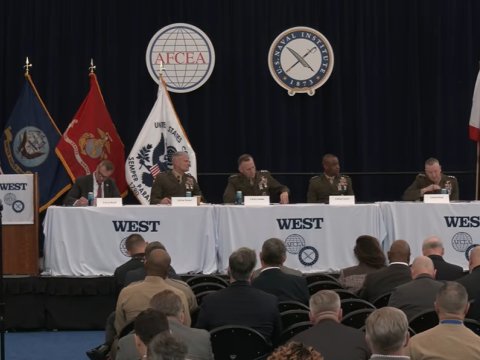HOW SHOULD WE MEASURE INTELLIGENCE COMMUNITY PERFORMANCE?
As the Congress and the DC dignitary debate if health care is affordable given the nation's first trillion dollar annual debit incursion, I am wondering where the money would come from should the United States need to defend its national interests against another Al Qaeda attack or worse. The President has already frozen budgetary growth for all discretionary spending not related to national security, but can the Defense Department and Intelligence Community remain fenced for much longer given the increasing national debt ----- the size of which already is a national security concern in its own right?
There is another debate occurring between former DNI Mike McConnell and newly appointed White House Cybersecurity Coordinator (aka czar?) Howard Schwartz regarding whether the
Sounds like there is lots of deep thinking for military and intelligence scholars to do regarding the metaphysics of cyberspace so lets move on ---- or back to our last discussion on "Systemic Failure or Irrelevance" of the IC, which drew several interesting and insightful comments.
First, I want to note that from their reaction it now seems clear that General McCrystal, General Patreaus, Admiral Mullen and Secretary Gates were all aware of MG Flynn's assessment of the changes needed in the
Second, I hope most of you saw AFCEA Intelligence Committee Chairman Bill Nolte's commentary on the AFCEA Intelligence website: where Bill asks "How Good Should Intelligence Be" and by extension what are reasonable metrics for assessing how good it is? In the aftermath of the intelligence community's collective failure to "no fly" Abdulmutallab (a.k.a. Passenger 19A) on December 25th, Bill’s central point is captured in a rhetorical question of "should the public expect intelligence to eliminate threats any more than they expect police services to eliminate crime?”" The answer is obviously NO, but this got me to thinking what should American people expect from their $75 billion intelligence enterprise? My immediate response was (and still is) military forces are not expected to eliminate wars, but they are expected to win them so is it not reasonable to expect the intelligence community to undermine the threat of terrorism (or cyber events, irregular warfare, etc.) over time? Some will properly argue that intelligence does not have the bandwidth to deal with all the threats confronting national security, if that is the case then the leadership of the intelligence community must advise the political leadership of the nation (probably in a classified setting) where the nation can best take more risks because of insufficient intelligent resources.
Another way of thinking about what metrics might be meaningful for the intelligence community is to suppose that the DNI was an elected position. This is a bad idea of course, because the campaigning would lead immediately to meaningless counter claims about who could provide the best intelligence for the least cost by reducing waste and still protect the civil liberties of all Americans. Remember the old adage about which two of the three do you want? Nonetheless, and elected DNI position would be an interesting way for the American people to express what they want their intelligence community to do for them. In a popular contest to become DNI, I wonder how long it would be before at least one of the candidates began to run ads after focus group testing promising to use the unequaled technical and human resources to insure that government understands the future threats it has to protect the republic from vice extrapolating threats from the recent past into the present?
That's what I think; what do you think?


Comment
Few comments:
JoeMaz's point about how the
John/Dave thanks for insights
Comments